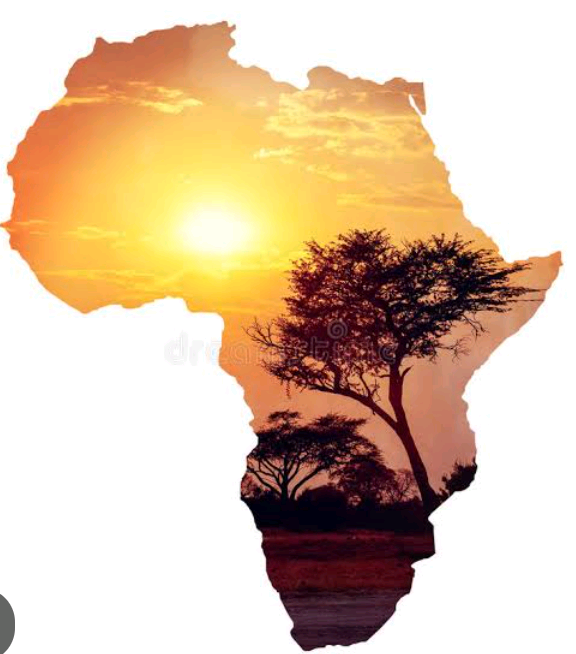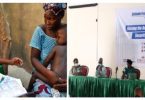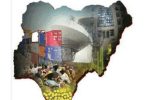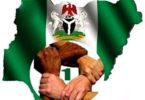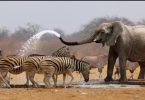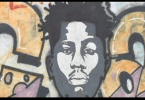‘Mama Africa‘ is a common appellation on the lips of people of the black race, whose ancestry are found in our famous, giant black continent. What makes Africa stand out from among all the world’s continents? How big is Africa? And what are the top 10 largest countries in Africa? We are just about to find out.
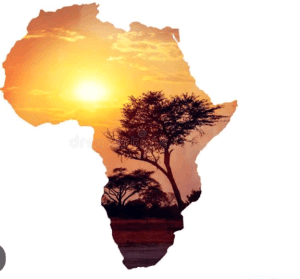

Historians state that the name ‘Africa‘ was not even the continent’s original name. It was a coinage by the ancient Romans and Greeks to identify parts of Algeria and Tunisia – only adopted roughly 2000 years later. Ancient Egyptian records point to its original name being ‘Alkebulan‘ – or cradle of civilization.
Interesting Facts about Africa
Africa is a peculiar continent for many reasons.
- After Asia, Africa is the second largest continent, covering an area of 30.3 million square kilometers altogether.
- Africa has well over 1.4 billion people distributed across its 56 countries, as at 2022.
- Africa is the richest continent. Virtually every African country has mineral deposits of all kinds (including crude oil, natural gas, gold, and diamonds). In fact, 95% of the world’s diamonds and 50% of the world’s gold, are said to come from Africa.
- Fossil evidences of every identified ancestor and stage of human evolution, from the dawn of creation, were found in Africa.
- Over 2000 languages are spoken in Africa alone.
- Africa is the biggest producer of cocoa beans – about 70% of world supply.
- The longest river (Nile), largest lake (Victoria) and largest hot desert (Sahara) in the world, are all found in Africa.
- Sadly, most of the world’s poorest countries are found in Africa. This is largely due to bad governance, corruption, tribal wars, and unchecked birth rates.
Also Read- 10 Largest States in Nigeria
Top 10 Largest Countries in Africa: By Land Area
Let take a quick look into Africa’s top 10 largest countries, and their unique features.
Country | Area (Square km) |
Algeria | 2,381,741 |
The DRC (Congo) | 2,344,858 |
Sudan | 1,861,484 |
Libya | 1,759,540 |
Chad | 1,284,000 |
Niger | 1,267,000 |
Angola | 1,246,700 |
Málì | 1,240,192 |
South Africa | 1,219,090 |
Ethiopia | 1,104,300 |
Algeria
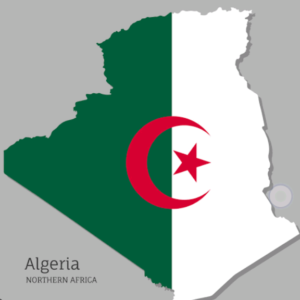

A largely Muslim country located in Northern Africa, Algeria‘s official languages are French, Arabic and Berber. The capital city is Algiers. The bigger part of Algerian land is occupied by the Sahara desert. As such, most of its inhabitants live along the Mediterranean coast. Algeria is a big-time exporter of crude oil and gas.
Furthermore, the country had Roman and French conquerors in their history. These former overlords left noble structures (such as cities) which today are important UNESCO heritage sites.
The DRC (Congo)
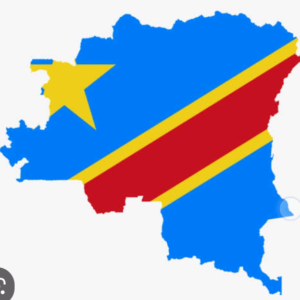

The Democratic Republic of Congo (DRC) is located in Central Africa. It is the largest French-speaking country in Africa in terms of population. Besides French being the official language, the national languages include Swahili, Tshiluba, Lingala and Kikongo. The nation’s capital is Kinshasa.
Following the colonization of the DRC by the King of Belgium from 1885 to 1960, the country gained its independence. But it has not enjoyed it. Secession groups arose to fight for control; but Mobutu Ṣẹṣẹ Seko took over the government in 1965. He renamed the country ‘Zaire‘ in 1971. Mobutu was later overthrown in the First Congo war of 1997 (with millions of casualties), following years of harsh dictatorship.
The name was changed back to the DRC and another war began, until Joseph Kabila took over power in 2001. The misrule and abuses continued until Felix Tshisekedi won the first ever peaceful presidential elections in 2018.
The country is very rich in resources, but its economy has been battered by years of misrule, corruption and unending wars. The poverty level in the DRC is one of the highest in the world.
Sudan
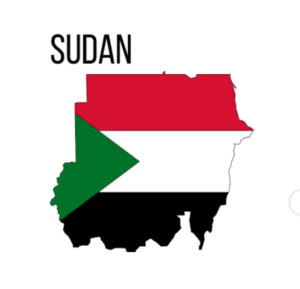

The Republic of Sudan is located in Northeast Africa, the capital city being Khartoum. It is quite distinct, and ruled separately from the other country named South Sudan which broke away in 2011. Its official languages are Arabic and English. About 91.7% of its citizens are Muslims, while Christians and worshipers of other faiths formed the minority.
Sudan went through a long history of subjugation by the Egyptian monarchy, then by Turkish settlers, and later the British government. It became the center of slave trade; and hundreds of its people were sold to the Egyptian and Turkish empires. Several battles and power negotiations took place between the Egyptian and British rulers. Revolts also arose intermittently from amongst the people. The country finally gained its full independence in 1956.
But between 1989 and 2019, the military took over power – led by Omar el-Bashir. A string of human rights abuses marked the regime. Until a serious uproar by the people led to the imprisonment of el-Bashir in 2019. Moreover, internal strife would cause a divide between the Islam-controlled North, and the Christians (and other faiths) in the South. It led to a civil war which culminated in the secession of South Sudan in 2011.
Sudan’s long history of civil unrest and misrule has contributed to its high level of poverty and slow development.
Also Read- Top 10 Universities in Canada
Libya
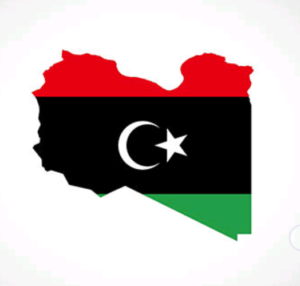

The State of Libya is located in North Africa with its capital in Tripoli. More than 99% of its inhabitants are Muslims, as such its official language is Arabic. It is one of the major crude oil producers in the world.
Originally occupied by Berbers right from the Bronze age, Libya would eventually undergo a series of occupations and control by foreigners. Phoenicians, Persians, Greeks, Romans, Vandals, Arabs, Spaniards, Turks, and Italians ruled the nation one after the other. Finally in 1951, Libya became an independent kingdom with its own king.
However, a military coup led by Muammar Gaddafi took over power in 1969 for the next 42 years. Gaddafi was later killed in the first civil war of Libya in 2011. Then a Transitional Council was set up to take charge and conduct general elections. But factions in authority arose, and the quarrel led to a second civil war. Though a ceasefire and a unified government was agreed upon in 2020, till date no election has taken place.
Chad
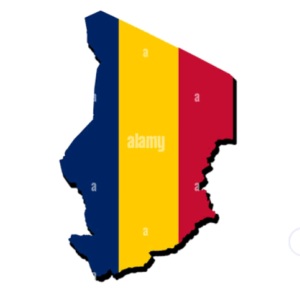

The Republic of Chad is located between Central and North Africa. The capital city is N’Djamena. The country takes its name from lake Chad, positioned southwest and shared between itself and Nigeria. The official languages are French and Arabic. Chad has over 200 ethnic groups.
Also, it is a secular country. About 55% of its population are Muslims residing towards the North. While the Christians and other religions are predominantly in the Southern region.
A good number of the trans-Saharan trade routes of old passed through the Chad region. Thus for centuries, one empire after another conquered the region to take control of the trade routes. Then the French government took over in 1920. The country finally got its independence in 1960.
Unfortunately, Chad continued to face waves of political instability and human rights abuses. Civil war, rebel control, insurgency from Libya, military takeover, and refugee crisis from neighboring Sudan pummeled the nation. The country is blessed with crude oil, gold and uranium deposits. But sadly, Chad ranks as one of the poorest, most corrupt and underdeveloped nations on the Earth.
Niger
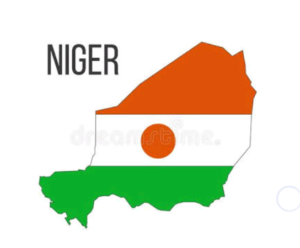

The Republic of Niger is located in West Africa. The Sahara desert occupies much of its land northward. Thus most of its population live in the southern and western regions, close to the river Niger. Its capital city is Niamey. The official language is French, having been a colony of France up until 1960 when it gained its independence.
The Niger region was also a prominent area in which the trans-Saharan trade routes were found. So it had its own fair share of takeover by a succession of empires. The country also experienced three periods of military control after independence. Currently a semi-presidential democratic government has been in place since 2010; the country is ruled by both a president and a prime minister.
Angola
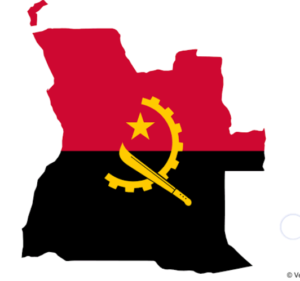

The Republic of Angola is located towards Southern Africa; its capital city is Luanda. The country was a former colony of Portugal right from the 16th century to 1975 when it gained independence. As such, the official language remains Portuguese till date.
Angola is blessed with a good number of coastal beaches and ports along the west coast. Rivers are abundant. While the Southern region is occupied by a vast desert that spills into neighboring Namibia.
Angola was plunged into a devastating civil war involving three political groups immediately after independence, from 1975 to 2002. However the ruling party, MPLA has held power since 1979 till now. In 2010, the Angolan constitution was rewritten to purge the presidential system of government altogether. As such, the president and vice-president of the victorious political party at the parliamentary election become president and vice-president of the nation.
Angola is a major producer of crude oil and gas, as well as diamonds. It has vast and rich agricultural lands. However, widespread corruption, abuse of power, and human rights violations have plagued the country. Angola remains one of the poorest nations in the world in spite of its natural endowments.
Málì
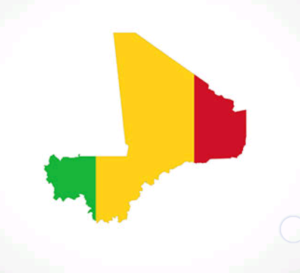

The Republic of Mali, whose capital city is Bamako, lies in West Africa. Its official language is French. The country has some of the oldest evidence of human civilization ever discovered. It is also home to some notable UNESCO heritage sites – including the oldest pyramid on Earth.
The larger part of Malian land towards the North is occupied by the Sahara desert. Luckily, both the Niger and Senegal rivers pass through the Southern region; thereby nourishing the savannah vegetation there. For this reason, most of Mali’s people live in the South and practice agriculture.
Ancient Mali empire up till the year 1300 thereabout, was one of three mighty empires that controlled the trans-Saharan trade routes. Thus, the Málì empire became the richest nation in Africa and the entire Earth. The empire established one of the world’s oldest universities in Timbuktu, which still operates till today. And Islam was adopted as the state religion early in its history.
Songhai and Moroccan invaders later took over the Mali empire one after the other. It went on until France arrived in the late 19th century to declare Mali as its colony. Being merged with Senegal, it was named French Sudan, and got its independence in 1960. Senegal separated from that union soon after; and the French Sudan was renamed the Republic of Mali.
The country operated under a one-party rule until a coup took place in 1991. The event paved the way for a new constitution and a multi-party democracy. Rebel wars and several military interventions took place between 2012 and now. Thereby stalling the country’s brief move towards democracy.
Málì is a major producer and exporter of gold, salt and cotton. Nevertheless, the political upheavals have contributed to widespread poverty in the land.
South Africa
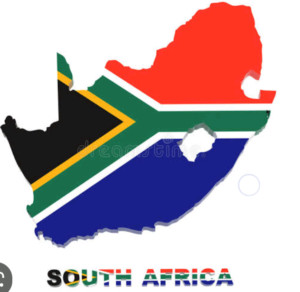

The Republic of South Africa is the southernmost tip of the African continent. It has a vast coastline that reaches into the Indian and South Atlantic oceans. This is the only country in the world with three capital cities: Cape Town, Pretoria, and Bloemfontein. It has 11 official languages, including Zulu, English and Afrikaans. Almost 80% of its inhabitants are Christians, the remaining percentage encompasses other faiths (including Islam). This multi-ethnic country comprises 80% blacks, the others being Indian, Chinese and European descendants.
South Africa holds the award for the most industrialized and technologically forward nation in Africa. It also has the largest number of UNESCO heritage sites. It is a land of beautiful landscapes, beaches, waterfalls and abundant wildlife. Thus, it has become a popular tourist destination for travelers across the globe.
The country has never experienced a coup d’etat. However, South Africa had a long history of racial segregation and maltreatment of the blacks from 1948 till the mid-1980s. It led to violent resistance by the activists of that time. And by 1994, the inhuman laws of the apartheid regime were totally scrapped. At present, every ethnic group is represented in the country’s liberal democracy.
Ethiopia
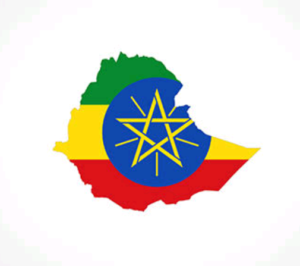

Ethiopia is truly an ancient country. This East African nation has its capital in Addis Ababa. Fossil evidence of human civilization that existed from 3 million years ago has been discovered there. It has five official languages (Somali, Tingriya, Oromo, Afar, Amharic). It is also a secular country with over 60% of its inhabitants practicing Christianity.
Agriculture constitutes over 85% of Ethiopia’s economic activity. The country is the big time exporter of coffee and maize, in addition to gold and leather products.


